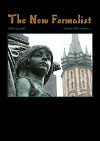Aster
Upon a roof, above a tide
Of feces, oil and water,
A dog who’d stepped, high-headed, with
A touch of purebred hauteur,
Lies supine, panting shallowly,
While flies in clusters guzzle
The purulence that oozes from
Her panic-tattered muzzle.
Beyond her ken, are hurricanes
And surge-dissevered levees,
And why her city drowns in sludge,
While governmental heavies
Are ducking blame, or feigning grief,
Or playing local hero
By adding, to some flood-fund’s end,
An ostentatious zero.
She only knows the hunger-hurt,
The misery of fly bites,
The longer-growing absence, of
Her days’ accustomed highlights—
The morning walk, the noontime nap,
The soft caress of, “Aster!”
While up and down her belly roam
The fingers of her master.
For Cecilia
Your namesake was a martyr and a saint.
John Dryden wrote a poem, Pope another,
Extolling her, as Rubens had in paint.
You caper on cassette, caught by your mother:
Eyes mirthful, eager-mouthed to merry-make,
Blowing out birthday candles, on a cake.
A Roman emperor decreed her slaughter
(Opining she’d be less subversive, dead),
By dunking, in a vat of boiling water
And subsequent removal of her head.
Aptly, his name was Severus: it’s true!
A bungled ransom-grab put paid to you.
In fifteen ninety-nine, so goes the story,
Her body, in a church, hove into view,
Inviolate, to God’s eternal glory.
Abandoned bones were all they found of you—
A little girl, for no good reason slain,
Whom God, Himself, could not make whole again.
[Cecilia Zhang was abducted from her Toronto home in October, 2003.
Her remains were found on March 28, 2004, two days before her tenth birthday]
Océane Tempête
Océane Tempête wrote extravagant fiction,
Fuelled by her fancy’s celestial flights,
Florid of plot and archaic of diction,
Peopled by emperors, viscounts and knights.
Crying, “unhand me, you coistrel, you blackguard!”
Maidens were cornered (of course, they were ‘fair’);
Dashing Sir Someone, heart-stoppingly laggard,
Saved them with less than a second to spare;
Or, should he fail to (stupendously handsome,
Still, he was human and—sometimes—was foiled),
They would be ransomed for—well, a king’s ransom,
Minus their … or, as she put it, ‘despoiled’.
Critics attacked her, with cutthroat abhorrence,
Scoffed at her characters, settings and plots,
Flogged her with Kafka, and Conrad, and Lawrence,
Mocked her ‘gramercies’, her ‘grippes’ and her ‘grots’.
She, though, aloft on a crest of supporters,
Wrote off the critics as auteurs manqués,
Thought up the plot-lines for two more ripsnorters,
Tossed back her Cognac and called it a day.
Rhiannon
Rhiannon was adopted, by a pair
Of yuppies, who had thought it might be fun
But, finding that it wasn’t, stopped at one.
She shuttles, now, pretending not to care,
Between her mom, a sorrow-laden souse,
And dad, who, in his forties, turned the page
With Mrs Smith the second (half his age),
Who makes her feel unwelcome in his house.
Her high-school English teacher likes her verse,
Which, though foreboding darkens every line
And renders it, perhaps, too strong a wine,
Is rich in image, penetrant and terse.
Her mother says it’s gloomy and grotesque.
Her father’s copy’s lost, behind his desk.
Her Single Sisters
Her husband dropped his aitches, smoked cigars
And took her ballroom dancing (here, they shuddered);
But then, she always had been faulty-ruddered,
Or guided by disreputable stars—
While they, her single sisters, read Flaubert,
Or listened to The Magic Flute, or Lakmé,
She’d bawled, “I’d rather Torquemada rack me!”
And dashed into the garden, trailing hair.
When, weekly, now, she trotted up their path,
Her gift, of eggs or apples, in a basket,
They pictured her at eighty, in a casket,
In death, as life, a barefaced Wife of Bath
And, muttering their thanks in awkward haste,
Retreated, heads awaggle at the waste.



